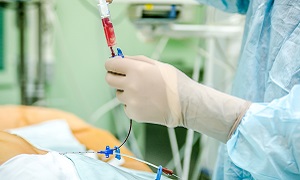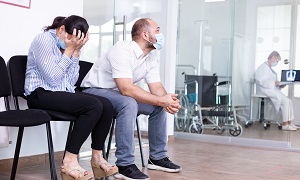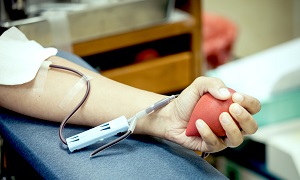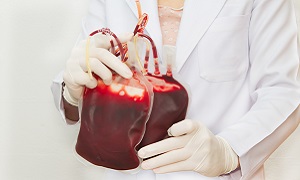Best Allogeneic BMT Doctors in India
Best Allogeneic BMT Hospitals in India
- City: Bengaluru, India
Hospital Highlights:
- Fortis Hospital Bannerghatta, Bengaluru was established in 2006.
- The hospital is a 276 bedded multi-specialty tertiary care facility.
- The hospital specializes in cutting-edge medical technology and dedicated patient care services.
- The hospital is equipped with state-of-the-art technologies like trans-radial angioplasty, trans-abdominal cardiac surgery, and computerized TKR navigation surgery.
- The hospital provides specialty medical services in cardiology, cardiac surgery, orthopedics, neurology, neuro-surgery, GI, and Minimal Access Surgery (MAS).
- City: Chennai, India
Hospital Highlights:
- Fortis Malar was established in 1992 and was formerly known as Malar Hospital.
- The hospital specializes in cutting-edge medical technology and dedicated patient care services.
- The hospital is multi-specialty, tertiary care facility with 180 beds.
- The hospital offers comprehensive medical care in specialties such as cardiology, cardio-thoracic surgery, neurology, neurosurgery, orthopedics, nephrology, gynecology, gastroenterology, urology, pediatrics, and diabetes.
- City: New Delhi, India
Hospital Highlights:
- Established in 1996, Pushpawati Singhania Research Institute is one of the top hospitals in the NCR region, as well as one of the top facilities in India for gastroenterology. The hospital is one of South Asia’s first institutes in medical and surgical treatment for diseases related to digestion.
- The hospital is equipped with state-of-the art facilities coupled with the latest equipment as well as renowned consultants from various parts of India as well as other parts of the world.
- City: New Delhi, India
Hospital Highlights:
- State-of-the-art technology and devoted healthcare professionals have been brought together under one roof at Venkateshwar Hospital to provide genuine medical care. The hospital’s professionals work together as a team to deliver the best possible treatment to their patients, using the most sophisticated equipment and information technology.
- Venkateshwar Hospital’s mission is to attain global excellence in healthcare by employing evidence-based, ethical clinical practices and cutting-edge technology by a team of highly skilled experts.
- City: New Delhi, India
Hospital Highlights:
- Sir Ganga Ram Hospital, New Delhi is known to provide the latest medical procedures with the latest technology in all of its units.
- The hospital has a team of reputed doctors, nurses, and healthcare professionals that ensure that patients receive quality care at affordable costs.
- Staffed with a team of highly qualified doctors, dedicated nurses, and paramedical and non-medical staff, the hospital aims to lead in healthcare delivery, medical education, training, and research.
- As per the vision of the founder, the hospital also provides free treatment to the economically weaker sections of society.
- Sir Ganga Ram Hospital also provides training to young doctors under the Diplomate in National Board(DNB) program. The DNB program at the hospital was started in 1984 and it is known for currently running the maximum number of DNB specialties in the country. It also has the distinction of having the first bone bank in India.
- City: Kerala, India
Hospital Highlights:
- Established in 2019, Apollo Adlux Hospital is the first Apollo Hospital in Kerala and the 73rd hospital owned by Apollo Group in India. With the state’s most advanced, comprehensive healthcare infrastructure and cutting-edge technologies, Apollo Adlux Hospital stands as an example of medical excellence in Kerala.
- With over 34 multi-specialty departments, the hospital believes in providing the best quality treatment to its patients at affordable rates, ensuring comfort at their difficult times.
- The 300-bed hospital is managed by a team of highly qualified and experienced experts who delivers exceptional hospitality to their patients and treats them with great compassion.
- With its affiliation with the Apollo Hospitals Group, the hospital aims in providing patients with top-notch healthcare services while also serving communities in Kerala.
- The hospital has good railway and road connections, and is conveniently close to Cochin International Airport.
- City: Gurugram, India
Hospital Highlights:
- Situated near DLF Cyber City, Gurugram, Narayana Superspecialty Hospital is one of the top medical facilities in the Delhi NCR region, catering to the needs of the people. Known for its commitment to quality medical care and patient service, the hospital is a state-of-the-art facility with planned and well-equipped sections, which includes a spacious OPD area as well as comfortable patient rooms.
- It is the closest super-specialty hospital from Indira Gandhi International Airport towards Gurugram, and also the nearest super specialty hospital from DLF Cyber City. It is also close to major residential areas in Gurugram.
- It is part of the renowned Narayana Health Group. Established in 2000, by Dr. Devi Shetty, a renowned cardiac surgeon, it has grown to be one fo India’s leading healthcare groups.
- City: Noida, India
Hospital Highlights:
- Fortis Hospital, Noida, stands as one of the oldest and most trusted healthcare institutions in the region, setting a benchmark for comprehensive medical care.
- As the second mega hub hospital in the Fortis Healthcare Group, Fortis Hospital, Noida, upholds a legacy of trust among more than 1.2 million patients. By integrating top-tier professionals with cutting-edge technology, the hospital delivers superior treatment across various medical disciplines.
- Specializing in advanced Neurosciences, Orthopedics, Kidney and Liver Transplant Programmes, Fortis Hospital, Noida has successfully performed over 1,500 transplants, solidifying its reputation as a leader in specialized medical interventions.
What is Allogeneic Bone Marrow Transplant?
An Allogeneic Bone Marrow Transplant (or Stem Cell Transplant) is a type of Bone Marrow Transplant where you receive healthy bone marrow from a matching donor to replace your diseased or damaged bone marrow.
When is Allogeneic BMT recommended?
Allogenic Bone Marrow Transplant is generally recommended for patients who are undergoing treatment for multiple or serious cancer or non-cancerous conditions. The doctors based on your clinical examinations will help you determine whether the allogenic transplant procedure is a perfect fit for your condition or not. Nevertheless, here is a list of the possible diseases that might need allogenic bone marrow transplant to cure:
- Chronic or acute leukemia
- Aplastic anemia
- Hodgkin’s/ Non-Hodgkin’s lymphoma
- Neuroblastoma
- Plasma cell disorders
- Multiple Myeloma
- POEMS Syndrome
- Myelodysplastic syndrome
- Immune deficiency
- Inborn metabolism disorder
Common diagnostic tests for Allogenic Bone Marrow Transplant
Some common diagnostic tests recommended to determine the need or course of your allogenic bone marrow transplant are- blood tests, X-Ray, bone marrow biopsy, pulmonary lung tests, PET scan and most importantly, Tissue Typing.
Donor matching
Unlike autologous transplant, the success of an allogenic bone marrow transplant heavily depends on how successful the donor match is. Often, the donor is someone related to you such as sibling, parents or any close relative. However, in some cases, donor registries are used to find the closest match. This brings us to Tissue Typing, a clinical test opted by both the donor and the patient in which proteins called HLA or Human Leukocyte Antigens found in tissues and white blood cells are extracted and tested to determine if the donor’s HLA and the recipient’s HLA matches or not.
The process includes extracting blood from both the donor and the patient and then tissue typing the blood samples to find the right match
The usual donor types include:
- HLA matched relative
- HLA mismatched relative
- HLA matched non-relative (donor unrelated)
- Unrelated umbilical cord match
Stem Cell Extraction:
Once the doctors are able to determine the perfect donor match for you, the stem cell extraction process is started to filter out the healthy stem cells from the donor’s blood. There are primarily two methods used by doctors to extract the stem cells from the donor’ body. The hematology team will decide the best method applicable for you.
The PBSC Donation
In this method, the donor will be injected with Filgrastim, a medication that boosts the stem cell count in the donor’s bloodstream. Based on favorable conditions, the stem cell extraction process starts after a few days where thin tubes inserted into the donor’s arms is connected to a machine. Blood extracted from the body passes through the machine that filters out the stem cells as the rest of the blood is returned back through the other arm. The stem cells are then frozen for the transplant day. The donor will be awake throughout the procedure.
The Bone Marrow Donation
Allogenic Bone Marrow Transplant preparation
The preparation method consists of a procedure called the Conditioning or a preparative regimen where the patient has to undergo chemo or radiation therapy to destroy the damaged or infected stem cells that are crowding inside. The process usually takes place a few days before the actual transplantation process and might come with a few common symptoms. The procedure based on the patient’s condition may have to repeated more than once or twice to ensure all the diseased stem cells are completely cleared out of the system before the actual transplantation process starts.
This procedure is also important to suppress the patient’s immune system to avoid it from reacting to the new stem cells that’ll be introduced during the transplant process. The conditioning reduces the risks of a transplant failure due to the body’s proactive immune system.
The Procedure- Day Zero!

On the day of the transplant procedure, also known as Day Zero, the patient undergoes the transfusion through a thin tube called the Central Line injected into the chest area of the patient. The stem cells introduced will make it to the bone marrow and fill up the gap left by the diseases stem cells and over 10 to 28 days the effects of the new stem cells will start showing as they start to repopulate the area
What to expect after Allogenic Transplant?
The stem cells refrigerated after the conditioning process is often coated with a preservative which may or may not cause certain symptoms post the transplant procedure. These symptoms can be in the form of-
- Chest pain
- Fever
- Chills
- Nausea and Vomiting
- Headache
- Diarrhea
- Shortness of breath
- Fatigue
- Bleeding disorders
- Mouth ulcers
Possible complications
Due to the reduced immune system, patients may experience low blood count which in turn makes them vulnerable to certain infections. Patient’s may have to undergo blood transfusions if their haemoglobin level falls or antibiotics and medicines to flush out the preservatives from the system and to protect the body from being exposed to infections.
Another possible complication can be the GVHD or the graft-versus-host disease where the immune system of the patient recognizes the newly introduced donor cells as foreign and harmful and might attack it. The intensity of this complication varies from patient to patient and medical drugs and constant monitoring are prescribed to tackle this situation
Recovery & care after Allogenic Bone Marrow Transplant
You’ll be asked to stay back in the hospital for a few days to monitor your recovery during which the medical team will help you out with the required medicine doses and diet chart. However, once you are released, the care and recovery are completely dependant on the patient. Please keep these pointers in mind:
Maintain a strict diet. Ask your doctor or medical team for a dietary chart and abide by it strictly to improve your recovery rate.
- Ask your doctor about vaccinations necessary to help you improve your immune system.
- Always take your medicine doses on time and don’t make any changes in your everyday medical routine unless advised otherwise by the doctor.
- Avoid weight gain at all cost.
- Avoid strenuous physical activities but make sure you exercise to keep yourself from unwanted weight gain.
FAQs
What is the usual hospital stay for an allogenic transplant?
Hospital stays depend on the patient’s recovery rate. However, a minimum 2-4 week is given to monitor the condition and patients might be asked to stay back or visit for routine follow-ups to consistently monitor their recovery.
What is the success rate for allogenic transplant?
Usually, allogenic transplant success rates heavily depend on how close a match the donor is. With the right donor, the success rates can be as high as 60-80%
What are the chances of my family members being my donors?
Almost 7 out of 10 cases noted that family members weren’t a close match. The match works only 1 out of 4 times for brothers or sisters. This is why the bone marrow registry is also consulted and 1 out of 430 matches are selected to be the perfect match
Will donating bone marrow affect me in any way?
Usually, only 4-6% of the donor’s bone marrow is extracted and the bone marrow regenerates itself within 4-6 weeks. Donating bone marrow will not affect donors permanently.
Are there any symptoms or risks to donating bone marrow?
Risks are rare and affect only 1% of bone marrow donors seriously. However, donors may feel certain side effects in terms of headache, muscle pain, nausea, or common flu symptoms. However, if any symptoms persist for more than a week, contact the medical team immediately.
What happens if my transplant fails?
Even though it’s rare, a failed transplant is possible. However, in that case, doctors usually recommend a second transplant.
What happens if my cancer comes back?
The sole purpose of the medical procedure is to kill or prolong the diseased cells affecting you. Even though the success rate is high, some patients have experienced a relapse. However, this is rare and in such cases a second transplant is advised by the doctors.











